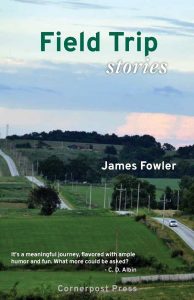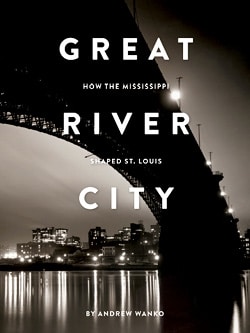A new short story collection from James Fowler reveals meaning in everyday lives.
This article originally appeared in the March/April issue of Missouri Life magazine.
How often do you stop and consider what’s going on in the minds of other drivers surrounding you out on the road? We may be able to glean some basic facts based on the age of the driver, the number of passengers, the make and model of the car, origin of the license plate, and factors of this nature, but these clues don’t deliver very meaningful information.
It’s with interest and curiosity of an almost anthropological nature that readers enter the vehicles of erstwhile anonymous strangers cruising down the open highway in James Fowler’s new short story collection Field Trip, out this year from Cornerpost Press. The book gives us an opportunity to ride along with a twelve-year-old boy fleeing trouble at his school, a young man chauffeuring a Polish author around Arkansas, and a woman whose appetite for travel seems fueled by a desire to escape her own grief.

(5½ by 8½ inches), $14.95
In the titular story, twelve-year-old Reed takes a road trip in his father’s car (after he steals it, of course) alongside a significantly older ex-con who calls herself Trixie. Reed is wary of Trixie and expects her to make off with the car as soon as he turns his back, but he’s consistently surprised by her earnestness as they travel together through Arkansas and Missouri.
Fowler’s use of regional, realistic style (in the tradition of Twain or Steinbeck) serves to cast the profound humanity of his characters into sharper relief. He uncovers secret depth lurking beneath the banal trappings of middle-American life.
These characters sometimes make assumptions about each other, like the gardening widower in “Second Growth” who assumes his neighbor won’t like the Latin American family who has moved in next door. But these assumptions falter when the neighbor and father of the family become friends.
Fowler, a poet as well as fiction writer, puts his lyrical sense of language on display. Take the following passage from “Natchez,” for example: “The sun has reddened above the opposite shore and casts a brassy sheen across the water into the restaurant. Distinct beams angle through the lobster tank and trace the liqueur bottles over the bar.”
Field Trip challenges the notion of people living “simple lives,” and invites us to cast aside assumptions we may harbor about people we see every day. What it reveals beneath the surface is something wondrous and compelling, something that may cause you to take a second look at your own life and the lives of those around you. At the very least, it may have you glancing in the rearview mirror to see if the car behind you is being driven by a twelve-year-old and an ex-con.
Related Posts
Book Review: Great River City
A new coffee table book looks beneath the surface of St. Louis’s river history
Book Review: Midwest Architecture Journeys
A new title from Belt Publishing explores the architecture of the region.
Book Review: Prairie Wildflowers
Prairie Wildflowers provides a companion on journeys through Missouri’s grasslands and beyond.



